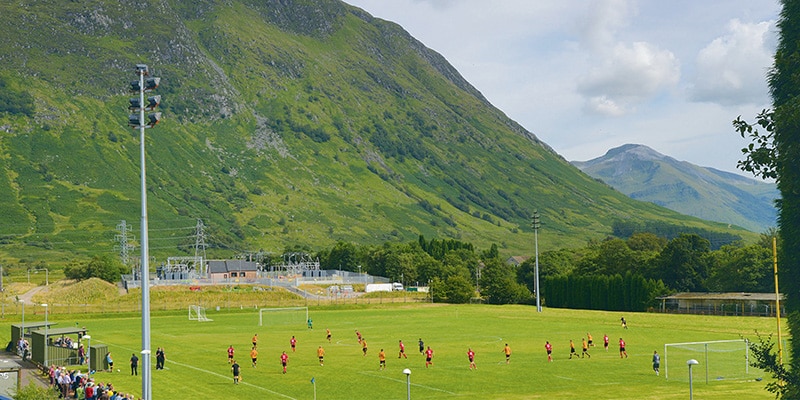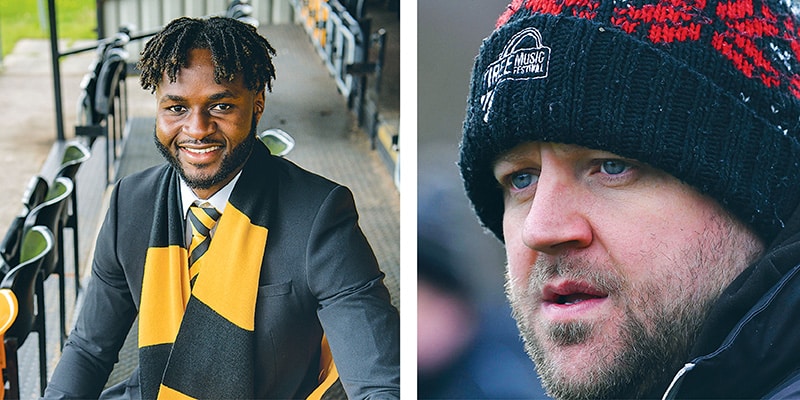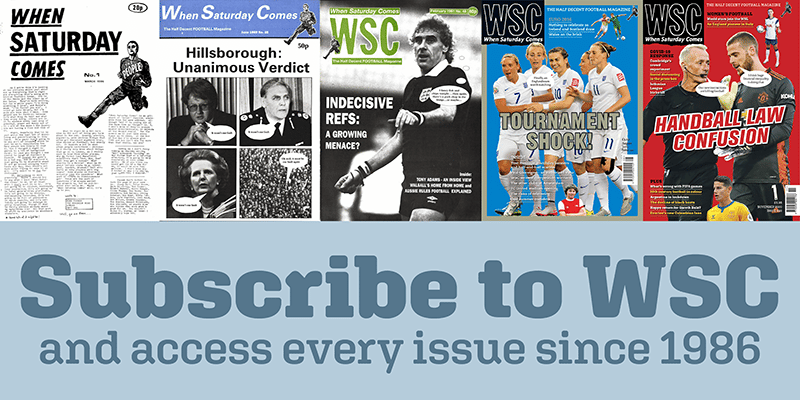
The foothills of Ben Nevis rise up behind Fort William’s Claggan Park. Iain Ferguson/Alba Photos
After propping up the league in 15 seasons out of the last 20, including conceding 184 goals in 2017-18, demotion has allowed the club to make a fresh start
By Mark Poole
17 October, 2022
Claggan Park, where Fort William play, among the foothills of Ben Nevis, is probably the most scenic league football ground in Britain. It’s also one of the most remote, the pitch isn’t great and the team have long been described as probably the worst league side in Britain.
They’ve recently endured a series of false dawns – and a public falling-out with the Highland League – but may now finally have the right opportunity to make a positive fresh start.
Until this summer there was no relegation from the Highland League, so the same club could finish bottom again and again. And the same club did: Fort William propped up everyone else in 15 of the last 20 seasons. They haven’t finished outside the bottom three since before Uri Geller made Gary McAllister miss a penalty against England at Euro 96.
The lowlights since then include: losing 17-0 to Peterhead and 16-0 to Brora; one point in 2008-09; conceding 184 goals in 2017-18, then the next season finishing on minus-seven points after being deducted nine for fielding an ineligible player; an 882-day run with no league wins between 2017 and 2019.
Then, in 2019, the club recruited several young loan players from Inverness Caledonian Thistle and things were briefly looking up. In January 2020 they went on a heady three-match unbeaten run, but a month later Covid stopped play. The Fort finished bottom again, but with eight games in hand over Lossiemouth, who were just three points ahead of them. They wouldn’t play at home again until this August.
Covid destroyed the next Highland League season. The Fort played just one game. They lost it 10-0.
This January, results started to improve under Shadab Iftikhar, who had worked with Roberto Martínez at Wigan. But the club were playing all their matches away from home – all between 65 and 165 miles away – because the Highland League had deemed Claggan Park unplayable, a fact disputed by the club after making improvements.
So The Fort still finished bottom, which – in the first season in which the Scottish football pyramid has been opened up to northern sixth-tier sides – left them in a play-off against ambitious Banks o’ Dee.

Former boss Chris Baffour, who left after two games in charge; latest Fort William manager Alan “Spud” Gray. Iain Ferguson/Alba Photos (2)
Then there was controversy. The club and the Highland League disagreed publicly on Twitter about discussions around two factors: the eligibility of some of the club’s goalkeepers, and the condition of the Claggan Park pitch, where The Fort were expecting to play their home leg. So the club withdrew from the play-off and are now playing in the North Caledonian League – which they competed in, with great success, for two seasons in the 1980s before joining the Highland League.
Now that they can’t be perennial Highland League wooden spoon winners any more, they should lose the tag of worst league team in Britain. Which should make it easier to recruit young local talent; it’s hard to convince players to join a losing side who have to make huge away trips, especially those who are good enough to be playing for one of the successful local shinty teams instead.
In June, the club appointed another new manager, Chris Baffour, from London, who brought in young English players. Under Baffour the club played two league matches. In their first game at Claggan Park since 2019 they lost 2-0 to Golspie Sutherland – the biggest club in the division. Two weeks later, they made the eight-hour round trip to Thurso, and won 2-1.
It was a decent start to this season, but it seems that all was not well because, just four days after the Thurso game, Baffour left the club and Alan “Spud” Gray – who established local amateur side South Lochaber Thistle – took over, alongside assistant manager Tommylee Taylor, as the club apparently shifted their focus back towards players and management who live locally.
Only time will tell – and The Fort fans know better than most the value of managing their own expectations – but it may well be a good move, to simplify things and begin again in a division where the club should be competitive, and at last find an opportunity to embrace their erstwhile ironic motto: “I Believe.”
This article first appeared in WSC 425, October 2022. Subscribers get free access to the complete WSC digital archive
Want to see your writing published in WSC? Take a look at our pitching guide and get in touch
Tags: Fort William, Highland League, Scotland
